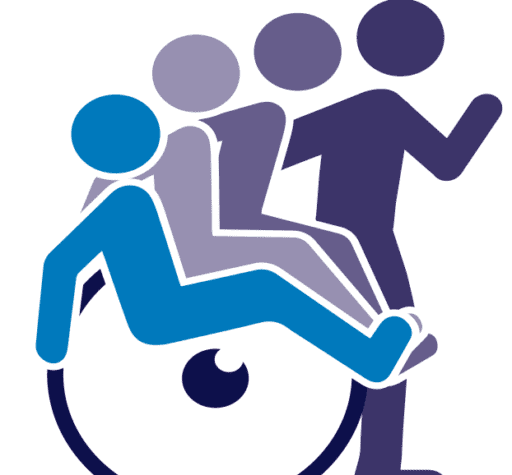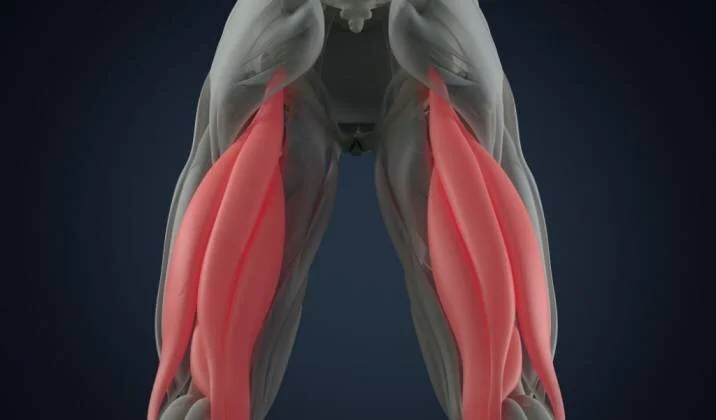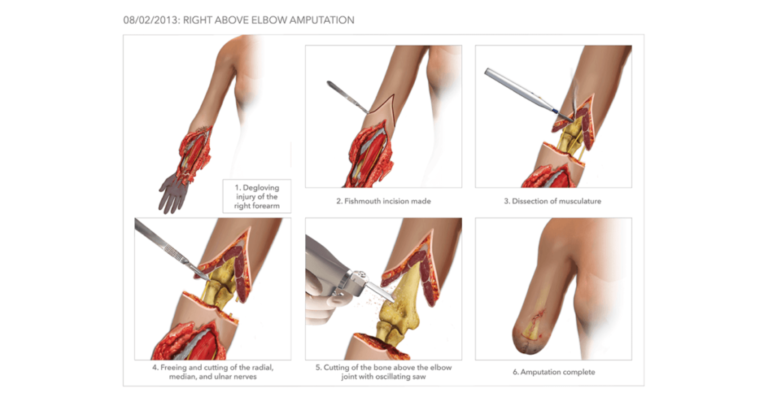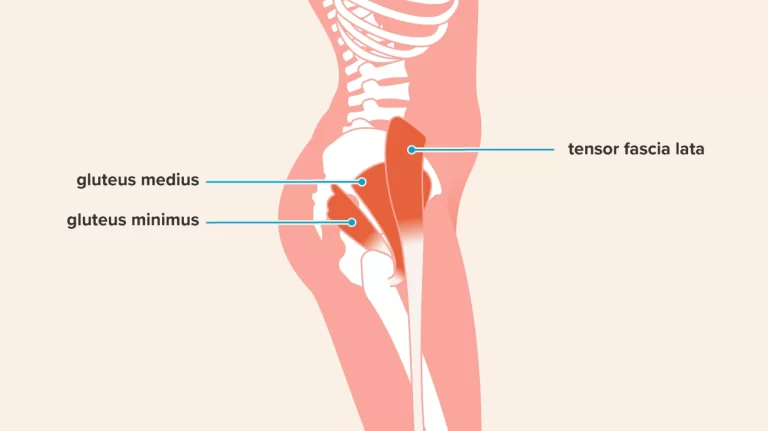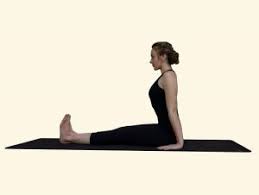Best Exercises For Heart
Table of Contents
Introduction
- In the majority of organisms, the heart is a muscular organ. The circulatory system’s blood vessels are pounded by this organ.
- In addition to delivering nutrition and oxygen to the body, pumping blood also transports carbon dioxide and other waste products to the lungs.
- The human heart is situated in the mediastinum, or middle chamber of the chest, between the lungs. Its size is like that of a closed fist.
- The upper left and right atria and lower left and right ventricles make up the four chambers of the heart found in humans, other animals, and birds.
- The right atrium and ventricle are collectively referred to as the “right heart,” and the left atrium and ventricle as the “left heart.”
- Every vertebrate has an asymmetrical heart that is nearly usually on the left side.
- One idea states that this results from an early embryo’s developmental axial twist.
- A collection of pacemaker cells in the sinoatrial node controls the heart’s rhythmic blood pumping.
- Through the atrioventricular node and the heart’s conduction system, they produce an electric current that contracts the heart.
- Deoxygenated blood from the superior and inferior venae cavae enters the human heart through the right atrium and travels to the right ventricle.
- It is then pushed into the pulmonary circulation and delivered to the lungs, where it takes in oxygen and exhales carbon dioxide.
- After leaving the left atrium, oxygenated blood travels through the left ventricle, the aorta, and capillaries to enter the systemic circulation. Here, nutrients and other substances are exchanged between blood vessels and cells, resulting in the loss and gain of carbon dioxide and oxygen. Finally, the blood is returned to the heart via venules and veins.
- About 72 beats per minute is the average resting heart rate.
- Exercise improves heart health and raises the rate momentarily before lowering it over time.
- As of 2008, cardiovascular illnesses accounted for thirty percent of all fatalities worldwide, making them the leading cause of mortality.
- Of them, stroke and coronary artery disease account for more than three-quarters.
- Among the many risk factors are things like smoking, being overweight, not exercising much, having high blood pressure, high cholesterol, and poorly managed diabetes.
- While shortness of breath or chest discomfort are common signs of cardiovascular disorders, they are not always present.
- The process of diagnosing heart illness often involves obtaining a medical history, and using an ECG, echocardiography, ultrasound, and stethoscope to listen to the heart sounds.
What is the best way to begin?
- Talk to your doctor about any new fitness regimen you want to start, any concerns you may have, and whether cardiac problems run in your family before making any commitments.
- previous medical approval.”
- “Checking your blood pressure, cholesterol panel, and hemoglobin A1C (sugars)” said Steinbaum and inflammatory markers are essential sources of data to assist in determining risk levels for increased intensity exercises, but if you’re a typically healthy person, proceed with caution while beginning a new exercise regimen and stick to your bounds.
- particularly if you’ve ever had any medical.
- It is crucial to avoid doing too much too soon if you are just beginning your fitness adventure.
- LaMotte advised that you create realistic goals and begin cautiously in order to achieve consistency.
- It is preferable to concentrate on covering a certain distance at a comfortable speed as opposed to increasing the effort and covering the distance at the same time moment.
- “Studies have shown that activities that get your heart rate into the moderate intensity heart rate zone are the best option for optimum cardiovascular benefit,” stated Steinbaum.
- Finding an activity you like and know you’ll stick with is the best way to go about doing this.
- Having a workout partner or a close circle of friends who can hold them responsible is beneficial.
- LaMotte cautioned, “It is also important to be tuned in to body feedback to decrease injury.” She also mentioned the need for rest days and being hydrated to reduce the danger of weariness and injury.
10 Best Exercises To Strengthen Your Heart
- The finest thing you can do for your health is probably to train your heart.
- Furthermore, as you are undoubtedly aware, exercising is the best way to train your heart.
- Actually, if you don’t exercise, your chances of developing cardiac issues are more than twice as high as those of someone who does.
- Should you have a history of cardiac issues or are merely concerned about the health of your heart, you should establish a regular exercise routine.
- Experts advise engaging in moderate exercise for at least 150 minutes per week.
- The finest workouts to maintain heart health are listed below.
Walking

- It may seem easy enough, really.
- However, walking—especially fast walking—is an effective way to strengthen your heart.
- Compared to other forms of exercise, brisk walking is less taxing on your joints and will raise your heart rate.
- All you need are some solid sneakers.
- Go for a walk during your lunch break or on the weekends for a longer walk.
- You can go for a walk with your pal or listen to music or a podcast.
- Walking’s versatility makes it easy for everyone to start and keep up with.
Weight training

- Developing a variety of body muscles will help your heart.
- Lifting weights during your training will help you gain muscle and burn fat.
- Even though you may use weights at the gym, using your own body weight is the most effective way to perform weight training.
- Exercises like push-ups, squats, and even pull-ups help you gain muscle and improve the health of your bones and heart.
Swimming

- Summertime is not the only time to go swimming.
- Swimming laps or enrolling in a water aerobics class are two full-body workouts that may strengthen your heart and body.
- Swimming is different from other activities in that it is less taxing on your joints and allows you to move your body pain-free.
Yoga

- It may not seem like it, but yoga is incredibly beneficial to the health of your heart.
- You can strengthen and tone your muscles by doing yoga.
- Certain styles of yoga can actually raise your heart rate while providing the serenity needed to lower your blood pressure.
Interval training
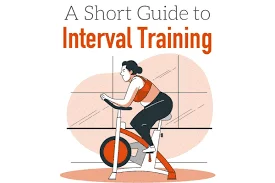
- An amazing way to get a full-sized workout quickly is through interval training, which alternates between brief bursts of high-intensity activity and longer periods of active recuperation.
- One way to go about it would be to sprint for a minute, followed by three minutes of walking, and then repeat the cycle.
- Your pulse’s ability to rise and fall helps you burn calories and enhances the health of your veins and arteries.
Cycling

- Riding a bicycle may be used for more than just getting from one place to another.
- It seems that cycling may help lower the risk of heart disease.
- It raises your pulse by using the big muscles in your legs.
Reward: It has even been demonstrated that cycling enhances mental well-being.
Core Workouts
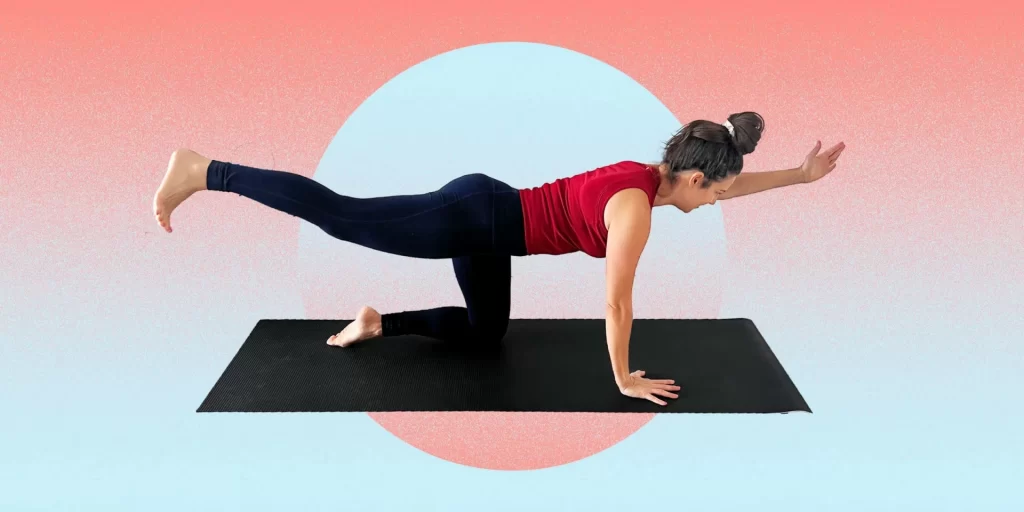
- Exercises such as Pilates enhance flexibility, and balance, and strengthen the core muscles, all of which contribute to a better quality of life.
- Therefore, we need strong cores to be able to carry groceries upstairs or perform any other energy-intensive jobs.
- Maintaining a robust core maintains our hearts healthy as well as ourselves fitter.
Dance

- Dancing is an excellent way to maintain heart health.
- All you need is some room, some supportive music, and a decent set of shoes.
- About 120 to 135 beats per minute is a respectable aerobic rhythm.
- Depending on your skill level and preferences, dancing can range from high to moderate intensity. You can work out alone at home or on the dance floor with others in a class setting, such as Zumba.
Tai Chi
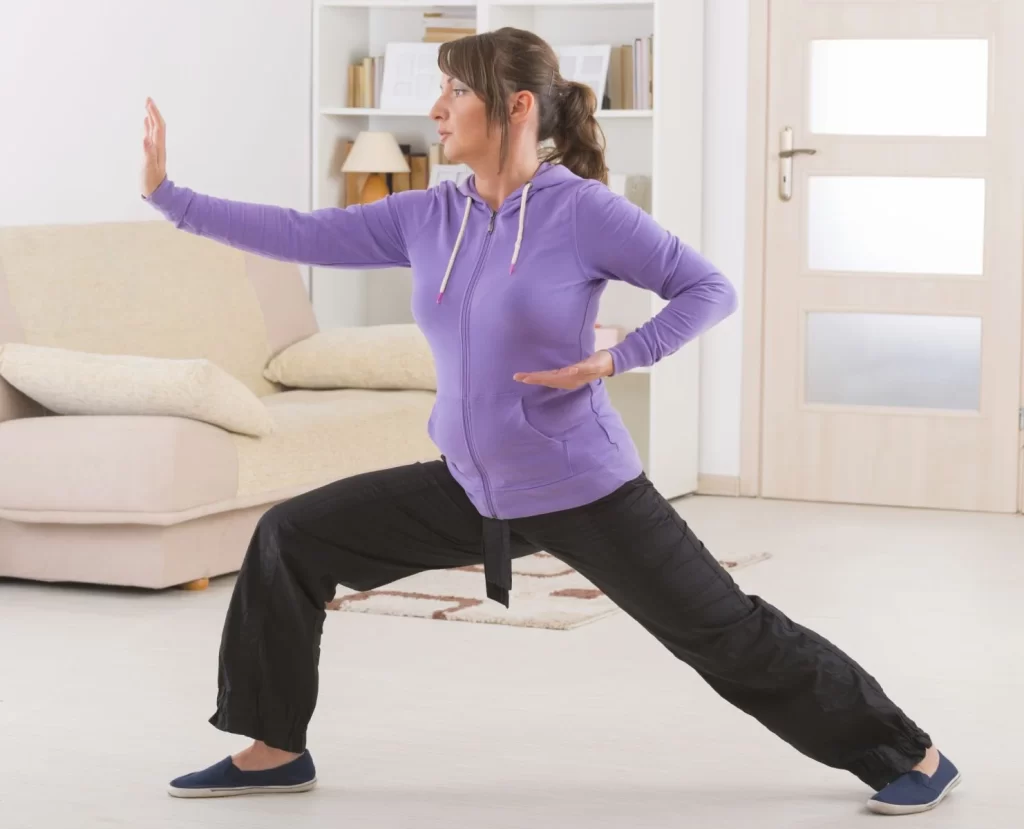
- Tai Chi is a traditional martial arts-based workout method from China.
- It is sometimes referred to as a “moving meditation” because it combines deep breathing and concentration with rhythmic body movements. This exercise is excellent for the body and the mind, especially for the heart.
Elliptical

- Elliptical trainers are among the most rapidly evolving solutions for aerobic training.
- These equipment are increasingly being purchased for use at home and can be found in many fitness establishments.
- One benefit of using an elliptical machine for heart health is that it provides instant upper and lower body workout.
- The lower effect of cycling is mimicked by the elliptical leg action, which mimics running.
- The repetitive arm movement simultaneously increases blood flow to your shoulder and back muscles.
To maintain heart health, make sure you perform these activities on a regular basis.
Three Types Of Simple Exercises To Improve Your Heart
- One of the most important steps toward heart health is physical activity.
- It’s one of your best weapons for controlling your weight, strengthening your heart muscle, and preventing arterial disease.
- Harm from elevated blood pressure, blood sugar, and cholesterol can result in a heart attack or stroke.
- ladies warming up before a bike trip.
- It’s also true that a variety of workouts are required to achieve total fitness.
- Kerry J., an exercise physiologist at Johns Hopkins, states that weight training and aerobic exercise are the two main components of heart health.
- Stewart, Ed.D.Although flexibility doesn’t immediately enhance heart health, it’s nevertheless important since it provides a strong foundation.
- executing strength and aerobic training more skillfully.
- Here are some advantages of various forms of exercise.
Aerobic Exercise

- What it does: According to Stewart, aerobic exercise increases circulation, which lowers heart rate and blood pressure.
It also improves your cardiac output, or how well your heart pumps, and your total aerobic fitness as determined, for example, by a treadmill test.
In addition to lowering the risk of type 2 diabetes, aerobic exercise also improves blood glucose management in those who already have the disease. - How much: Five days a week, ideally, for at least 30 minutes each day.
- Walking quickly, running, swimming, cycling, playing tennis, and jumping rope are a few examples.
Doctors prescribe at least 150 minutes a week of moderate activity, and they mean heart-pounding aerobic exercise.
Resistance Training (Strength Work)
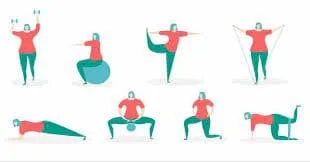
- What it does: Resistance training, in Stewart’s opinion, has a more concentrated effect on body composition.
It can aid in fat reduction and the creation of leaner muscle mass for those who are carrying a lot of body fat, especially those with large bellies, which increases cardiovascular disease risk.
Studies indicate that a mix of strength training and aerobic exercise can help increase HDL (good) cholesterol and decrease LDL (bad) cholesterol. - How much: The American College of Sports Medicine recommends doing weight training for at least two nonconsecutive days each week.
- Exercises using free weights (such as hand, dumb, or barbells), weight machines, resistance bands, or body-resistance exercises like chin-ups, squats, and push-ups are a few examples.
Stretching, Flexibility, and Balance

- What they carry out: Stretching and other flexibility exercises don’t immediately improve heart health.
They help your musculoskeletal system, which keeps you flexible and free from muscle problems like cramps and joint discomfort.
According to Stewart, maintaining that flexibility is essential to continuing weight training and aerobic activity. - Strengthening your musculoskeletal base can enable you to engage in heart-healthy activities.
Exercises for balance and flexibility also contribute to stability and help avoid falls, which can result in injuries that restrict other types of exercise. - Examples: If you’re worried about the intensity of the exercise, see your doctor. Alternatively, you can discover DVDs or YouTube tutorials that you may follow, or your doctor can propose simple stretches you can perform at home.
These abilities are also enhanced by tai chi and yoga, which have classes accessible in many towns.
20 Fast and Natural Ways to Boost Your Heart Health
- Your heart is the pump that supplies all of the tissues in your body with nourishment and oxygen.
- Maintaining it well is essential to living a healthy life.
- You can keep your ticker ticking by implementing these suggestions into your everyday life.
Eat for heart health
- Cut back on the quantity of salt you eat every day.
- A tiny 2017 study found that eating too much salt makes you retain water. When it does, the extra fluid in your body requires your heart to pump harder. Pick items with the indication “no salt added,” steer clear of meals that have more than 400 mg of sodium per serving and aim to consume no more than 1500 mg of sodium daily.
- Use herbs and spices in place of salt wherever possible while cooking.
- Lowering salt and improving heart health can both be accomplished with the Dietary Approaches to Stop Hypertension (DASH) diet.
Eat fewer foods high in saturated fat
- Hard plaque accumulation in your arteries caused by atherosclerosis can be attributed to saturated fat.
- By eliminating high-fat dairy items and consuming low-fat meat cuts like sirloin tip or eye of round roast, you may reduce your consumption.
- Generally speaking, there will be more saturated fat in everything oily.
Make heart-healthy fat choices
- Since they reduce inflammation in the body, unsaturated fats may be beneficial to your heart.
- Inflammation can lead to heart disease.
- Low-fat mayonnaise, vegetable oil, and oil-based salad dressings are examples of heart-healthy fats.
- A pleasant approach to increase the amount of healthy fats in your diet and decrease cholesterol is to adopt a Mediterranean diet.
Increase your dietary fiber intake
- In addition to making you feel fuller, fiber can help decrease cholesterol.
- In addition, according to the Department of Human and Health, foods abundant in fiber, such as whole grains, legumes, fruits, and vegetables, are typically healthier.
Eat lots of fruits and vegetables
- In addition to being fewer in calories and higher in nutrients, fruits, and vegetables can help you maintain a healthy weight and prevent inflammation.
- The better your selections are, the more vibrant and fresh they are.
Eat low-fat dairy products
- Dairy products with low-fat content provide great substitutes for those with high-fat content.
- Examples include soy milk, skim milk, fat-free cheeses, and low-fat yogurt.
- Take action.
- Get active
- Get enough exercise each week
- You can choose to work in a moderate or strenuous manner according to your preferences.
- It is recommended to engage in moderate-intensity aerobic exercise for at least 150 minutes each week, or 75 minutes of strenuous activity.
- Mixing the two is also acceptable.
Don’t leave out resistance training
- Your metabolism can be boosted by doing exercises that develop strong muscles, such as lifting weights or utilizing resistance bands.
- This aids in keeping your blood pressure and weight in check.
Spend less time sitting
- It may be more heart-healthy to stand, walk, and move around generally than to sit all the time.
- Use a standing desk if at all feasible, or try to go out and walk periodically during the workday.
- Physical inactivity is associated with increased risks of heart disease and early mortality.
- Continue your journey!
Maintain good habits
- Don’t smoke
- Smoking can negatively impact your heart health in many ways.
- If you currently smoke, this is an excellent moment to give it up.
- Call 1-800-QUIT-NOW to reach a 24-hour helpline with services to help you stop smoking if you need it.
Avoid secondhand smoke
- Additionally endangering your heart health is secondhand smoking exposure.
- Ask everyone who smokes in your home to go outside.
- Alternatively, urge them to give up.
Don’t drink too much alcohol
- Overindulgence in alcohol might raise your risk of heart disease.
The key is moderation. - Health and Human Services Department most folks, suggests no more than two drinks each day.
Maintain a moderate weight
- Your heart isn’t under undue strain when you maintain a moderate weight.
- Discuss with your physician what a reasonable weight for your age, height, and body type .
Manage your chronic health conditions
- You can adopt a preventative care strategy by seeing a doctor once a year, or more frequently, based on your health.
- Try to treat any illnesses that are known to impact heart health, such as diabetes or chronic renal disease, in order to enhance your general well-being.
- Your prognosis can be significantly enhanced by starting therapy early and adhering to your treatment plan.
Manage stress
- Take time to relax each day
- You may improve your general health by finding some time to unwind, even if it’s only for a little while.
- If stress permeates your daily existence, you have a higher chance of obesity, heart disease, and elevated blood pressure.
Speak with a friend or family member
- When you’re stressed, talking to your loved ones might help you get the support you need.
- It might be challenging to talk about your feelings and fears, but someone who genuinely cares about you will provide you with a sympathetic ear.
- They’ll also probably appreciate the opportunity to learn how they might support you more effectively.
Create stress management strategies
- In all likelihood, you will occasionally have to cope with uncomfortable situations.
- Make a plan for how you’re going to stay composed when you do.
- This might entail setting priorities for the activities at hand, taking deep breaths, or repeating a soothing phrase.
- You can handle difficult situations better if you’re prepared for them.
You are already improving your heart health when you give up smoking. - 2019 in reviewAccording to, some people who stop smoking may gain weight after doing so.
The health of your heart can suffer as a result of this.
However, giving up smoking is still very crucial. - Try the following advice to benefit from stopping smoking and keeping a healthy weight:
- Use nicotine patches or varenicline (Chantix) as drugs to aid in your smoking cessation.
These methods assist in preventing weight gain throughout your cessation of smoking.
See a therapist or close friend for emotional support while you’re attempting to give up and lead a healthy lifestyle. - Having psychological support might assist you in keeping your weight stable.
- To help keep a healthy physique and a reasonable weight, engage in frequent exercise.
- After stopping smoking, you could notice that you can physically challenge yourself more because you won’t be coughing as much.
How to strengthen your heart when carrying a child
- A 2016 study found that a number of conditions associated with pregnancy, including gestational hypertension and preeclampsia, can raise your chance of developing heart disease in the future.
- There are certain things you can do to improve the health of your heart, even if these illnesses aren’t always avoidable.
- Keep all of the prenatal visits that are advised. Your physician can keep an eye out for any possible side effects, such as diabetes or elevated blood pressure.
Medicating for these conditions can help you keep your heart healthy. - As long as your doctor says it’s okay, do your normal activities while pregnant.
Maintaining an active lifestyle throughout pregnancy might help you feel less stressed and keep your body in good shape. - Adhere to a heart-healthy, DASH-style diet.
A review for 2021This diet has been linked to lower blood pressure during pregnancy. - Steer clear of sugary and high-fat meals when pregnant.
These behaviors raise your danger of premature birth. - Stop smoking if you smoke.
One of the most significant modifiable risk factors for heart health and pregnancy is smoking.
How to strengthen your heart following a heart attack
A heart attack may serve as a reminder to take additional heart-healthy precautions. Here are a few methods by which you can do this: - As directed by your physician, take your drugs as directed each day.
Discuss potential side effects with your doctor, as well as when to contact them with any worries. - Participate in cardiac rehabilitation.
Following a heart attack, cardiac rehabilitation is a service provided by several hospitals and healthcare centers.
With this method, you may work out while donning a monitor.
When you exercise, the monitor helps ensure that your heart rate isn’t too high. - Set up a check-up appointment with your primary care physician.
They can examine you for other illnesses like diabetes that could have an impact on the health of your heart during the examination.
You can reduce your chance of having another heart attack by evaluating your general health and making healthy lifestyle changes.
How to strengthen your heart when your movement is limited
- It might be harder, but not impossible, to do standard exercise methods if you have a mobility-limiting ailment.
- As recommended by a tiny 2019 research, try “exergaming.”
- This is the time when you employ motion-based video games or games themselves as a kind of physical workout.
- For those with limited mobility, a controller-intensive game like golf or bowling on the Nintendo Wii may be an entertaining and interesting form of exercise.
- Apply a stationary cycle machine to your legs or arms.
- These exercise equipment can frequently be used by those with reduced mobility to improve heart health.
How to strengthen your heart after contracting COVID-19
- Studies on the effects of COVID-19 on the heart are still ongoing.
, some people are more impacted than others, just like with the illness itself. - Physicians are worried that certain patients’ inflammation of the heart tissue may result in cardiac failure.
- There are no particular best practices that have been demonstrated to assist persons who have cardiac issues following COVID-19 since the relationship between COVID-19 and heart health is still under investigation.
To have a preventive impact, adopt general heart-healthy behaviors, such as eating a balanced diet, exercising, and quitting smoking, until specialists learn more.
The benefits of exercise for your heart
- Cardiovascular health benefits from exercise in general.
- It lowers blood pressure, raises HDL (good) cholesterol, lessens stress, and strengthens the heart.
- It also lessens the risk of developing heart disease.
- The capacity to effectively remove oxygen from the blood, allowing your muscles to get more blood.
- There are ancillary advantages as well, “Exercise can also help control cardiovascular risk factors such as diabetes, high cholesterol, and obesity,” according to Dr. Lance LaMotte.
- Owner of Baton Rouge, Louisiana’s Title Boxing Club and interventional cardiologist.
- On the other hand, because inactivity has been connected to an increased risk of acquiring certain diseases, it’s also critical to stay active as you age.
- It also raises the likelihood of a significant cardiovascular incident.
- LaMotte states that research has demonstrated a lower risk of heart attack and stroke when an individual maintains or increases their level of exercise as they age.
- Exercise not only helps you stay young but also enhances your memory and cognitive function.
- Heart health LaMotte stated as much as.
Conclusion
Being physically active is crucial to keeping your heart in optimum condition. It’s one of the most efficient ways to strengthen your heart muscle, maintain a healthy weight, and prevent artery harm brought on by elevated blood pressure, blood sugar, or cholesterol that raises the risk of a stroke or heart attack.
There are far too many benefits to a healthy heart in terms of longevity and quality of life to be ignored. You can maintain the health of your heart for many years to come by exercising regularly. Try yoga, dancing, swimming, or anything else you like doing.
FAQ
Five days a week, ideally, for at least 30 minutes each day. Walking quickly, running, swimming, cycling, playing tennis, and jumping rope are a few examples.
Doctors prescribe at least 150 minutes a week of moderate activity, and they mean heart-pounding aerobic exercise.
Exercises that are good for your heart, such as swimming, yoga, strength training, walking, cycling, HIIT, and running, can lower your risk of heart disease and stroke. To get the benefits, you don’t even need to work out for hours each day.
Seven reasons that exercise is good for your heart
Reduce your blood pressure…
Boost blood circulation…
Improve workout efficiency. …
Lower cholesterol. …
Lower your chance of stroke, heart disease, and diabetes.
Encourage additional heart-healthy practices.…
Cut down on the frequency of cardiac arrhythmias such as atrial fibrillation (AFib).
Four flights of stairs are believed to require no more than 1.5 minutes for a person in good cardiac health.
You should see a doctor if you are unable to climb the steps in the allotted time since this might indicate that your heart health is not at its best.
References:
- M. (2020, September 23). Back Attack | 6 Must-Do Back Exercises For Mass – MYPROTEINTM. MYPROTEINTM. https://www.myprotein.co.in/blog/training/6-must-do-back-exercises-mass/
In-Text Citation: (2020) - 6 Best exercises to strengthen your heart. (n.d.). https://intermountainhealthcare.org/blogs/6-best-exercises-to-strengthen-your-heart
- Best exercises to improve heart health. (n.d.). University of Iowa Hospitals & Clinics. https://uihc.org/health-topics/best-exercises-improve-heart-health
